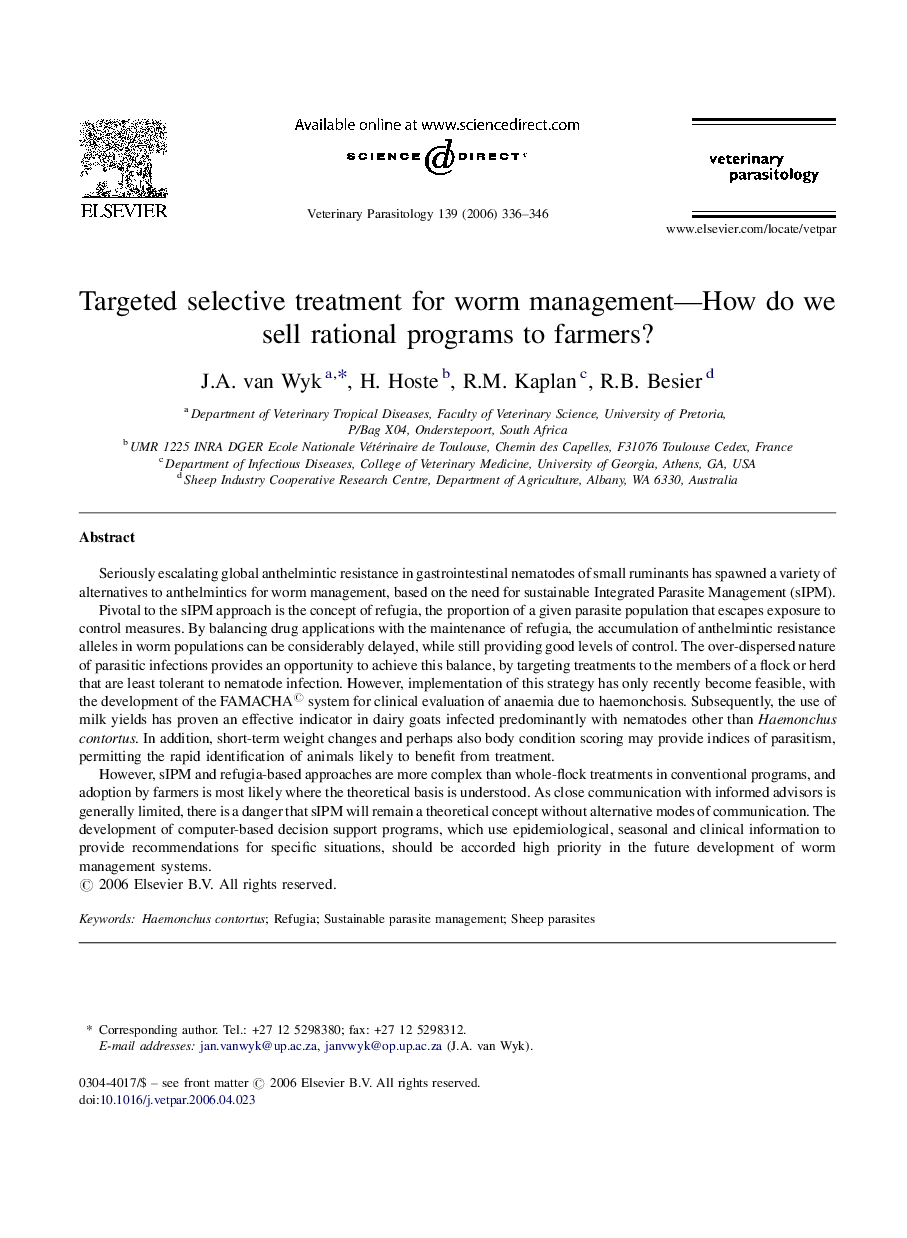| کد مقاله | کد نشریه | سال انتشار | مقاله انگلیسی | نسخه تمام متن |
|---|---|---|---|---|
| 2472430 | 1112572 | 2006 | 11 صفحه PDF | دانلود رایگان |

Seriously escalating global anthelmintic resistance in gastrointestinal nematodes of small ruminants has spawned a variety of alternatives to anthelmintics for worm management, based on the need for sustainable Integrated Parasite Management (sIPM).Pivotal to the sIPM approach is the concept of refugia, the proportion of a given parasite population that escapes exposure to control measures. By balancing drug applications with the maintenance of refugia, the accumulation of anthelmintic resistance alleles in worm populations can be considerably delayed, while still providing good levels of control. The over-dispersed nature of parasitic infections provides an opportunity to achieve this balance, by targeting treatments to the members of a flock or herd that are least tolerant to nematode infection. However, implementation of this strategy has only recently become feasible, with the development of the FAMACHA© system for clinical evaluation of anaemia due to haemonchosis. Subsequently, the use of milk yields has proven an effective indicator in dairy goats infected predominantly with nematodes other than Haemonchus contortus. In addition, short-term weight changes and perhaps also body condition scoring may provide indices of parasitism, permitting the rapid identification of animals likely to benefit from treatment.However, sIPM and refugia-based approaches are more complex than whole-flock treatments in conventional programs, and adoption by farmers is most likely where the theoretical basis is understood. As close communication with informed advisors is generally limited, there is a danger that sIPM will remain a theoretical concept without alternative modes of communication. The development of computer-based decision support programs, which use epidemiological, seasonal and clinical information to provide recommendations for specific situations, should be accorded high priority in the future development of worm management systems.
Journal: Veterinary Parasitology - Volume 139, Issue 4, 31 July 2006, Pages 336–346